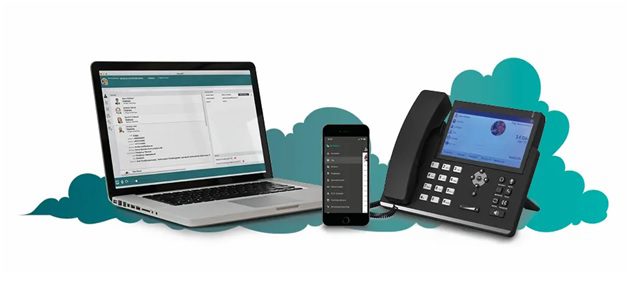Should Your Business Switch to Cloud PBX?

PBX systems have been evolving since their invention in the 1880s. Conventionally, these systems were only available as an on-premises solution. This meant a high cost of installation, maintenance, rigorous self-management, and high levels of complexity, among others.
Today, businesses are switching to the more advanced and flexible cloud-based PBX systems. This is due to their reliability, ease of use, and integration with other business products such as Microsoft Teams. However, switching from on-premises to cloud-based PBX requires you to understand how the technology works, the benefits you’ll reap, and the drawbacks of the same.
What is Cloud PBX?
Cloud PBX is a business phone system whose infrastructure is entirely hosted on off-site data centers, and all services are provided over the internet.
Due to how cloud PBX is structured, these systems can offer valuable features such as automated attendants, extension dialing, call queues, and conference calling.
How Cloud PBX works
To understand how cloud PBX works, here is a primer on PBX technology.
How PBX works
PBX stands for Private Branch Exchange, and it is a private telephone system that enables businesses to communicate both internally and externally. The PBX box is the system responsible for routing incoming and outgoing calls as well as transferring calls to other extensions. It also houses all the specifications of how your phone system should work.
Originally, PBX systems were analog, and they connected to the Public Switch Telephone Network (PSTN) over Plain Old Telephone Service (POTS) lines. After the internet became popular, these systems were phased out to welcome on-premises IP PBX or VoIP PBX.
Instead of connecting over copper wires like analog PBX systems, the newer phone systems would connect over the office Local Area Network (LAN) and be capable of high-definition audio and many other sophisticated PBX features.
Also know About: Cloud telephony still uses VoIP.
How Cloud PBX works
Cloud PBX systems are also referred to as hosted PBX or Virtual PBX. These systems were designed to take the phone system out of the office’s telecom closet and put it on the cloud.
Cloud telephony still uses VoIP, but all the services, features, and functionalities are accessed via the internet rather than from an on-site box. All complex functionalities of the phone systems, such asconnectivity to the PSTN, are also transferred from the business to the PBX provider.
This kind of setup eliminates the expenses and complications of installing and maintain on-site PBX systems. New upgrades and feature releases are also added to the system automatically and immediately.
The benefits of using Cloud PBX
Cloud PBX systems come with a lot of benefits that can help businesses operate with ease.
Low cost
One of the greatest advantages of using a cloud PBX system is that you won’t have to purchase the physical equipment. The phone system is available as a service, and all you will need is VoIP-enabled phones, office computers, or even mobile phones, depending on how you want to deploy it. This also means that you’ll save on the installation and maintenance costs.
Flexibility
The world is continually moving towards telecommuting, and cloud-based PBX systems allow employees to communicate from anywhere at any time. This is made possible by softphones that can be installed on computers and mobile apps that allow connection to the phone system.
Advanced features
Cloud PBX comes with advanced features that allow new functionalities and integration with other office systems. Some of these features include call queues, ring groups, voicemail-to-email, video/ web conferencing, text messaging, extension dialing, and online management. Some services also give you a free fax number to integrate with your business phone.
The drawbacks of Cloud PBX
Cloud PBX comes with a lot of benefits, but the solution is not perfect. First, the whole system is usually reliant on your company’s internet. If your network is experiencing issues, then no amount of redundancy can prevent your calls from losing quality or being dropped altogether.
Further, these systems can be less secure as you have to rely on somebody else’s security. The data being sent over the internet can be intercepted if the provider does not take the right security measures. If you decide to go with a Cloud PBX service, ensure that the provider offers robust security and that your internet connection is strong and reliable.
